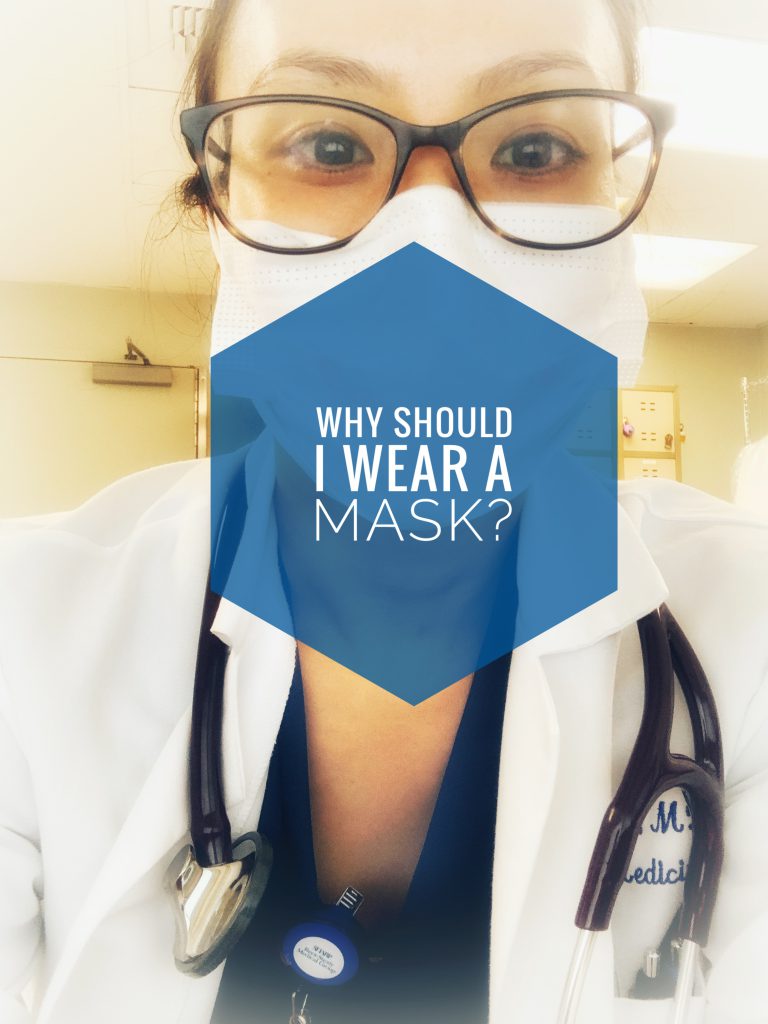Why should I wear a mask? Here’s why:
Masks provide “source control”—blocking the spread of respiratory droplets from a person with active, but perhaps unrecognized, infection. A study published in Nature showed that surgical masks are effective at blocking 99% of respiratory droplets. Double-layered cotton masks, the kind most of us have been making at home, can block droplet emissions as well. And the Sars-CoV-2 virus doesn’t last long on cloth; viral counts drop 99% in 3 hours. A recent review of the research suggests that if at least 60% of the population wore masks that were just 60% effective in blocking viral transmission (i.e. a cloth mask), the epidemic could be stopped. Read that again. If just 2/3 of us would wear masks, COVID-19 COULD BE STOPPED.
I don’t think this is asking a lot. If you have to wear pants in public, it is not much more burdensome to wear a mask.
Cloth and surgical masks don’t fit tightly, so it is hyperbole to say you can’t breathe. Maybe it is not as comfortable, but you can breathe air coming in around the sides. They are designed to safeguard others, not the wearer. The basic logic is: I protect you; you protect me. Benefit to the wearer may be limited, but it’s not insignificant: surgical masks reduce inhalation of respiratory-droplet-size particles by about 75%. Two-layer cotton masks filter about half as much, though a good fit can improve that considerably. Masks also prevent wearers from touching their noses and mouths.
Evidence of the benefits of mandatory masks is now overwhelming. Our hospital system would not be able to stop viral spread without them. So yes, you should wear a mask. I protect you and you protect me. We’re in this together, let’s beat this virus together. Thanks for sharing this info and wearing a mask! .
Thanks also to @atul.gawande for providing the majority of these statistics! .



